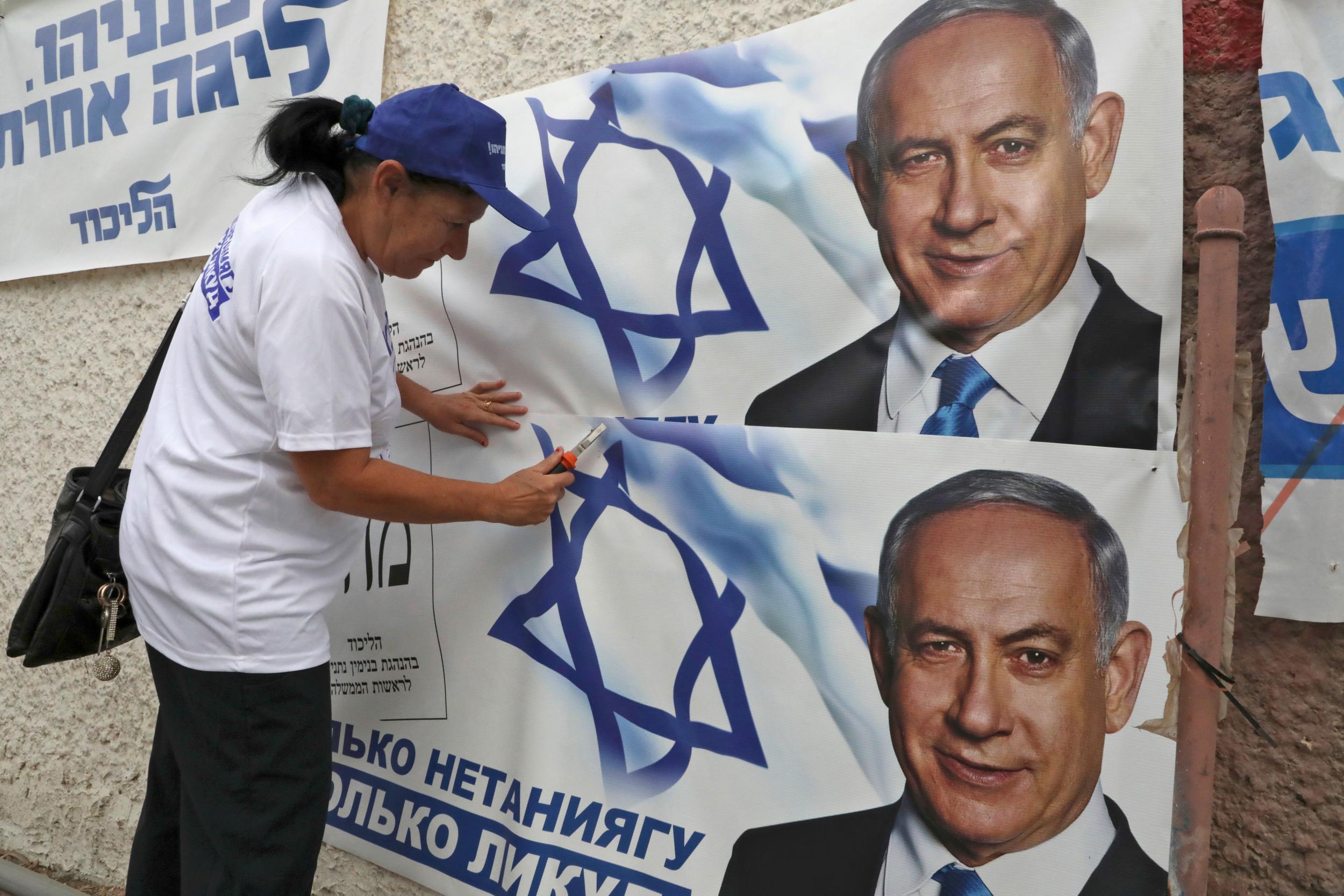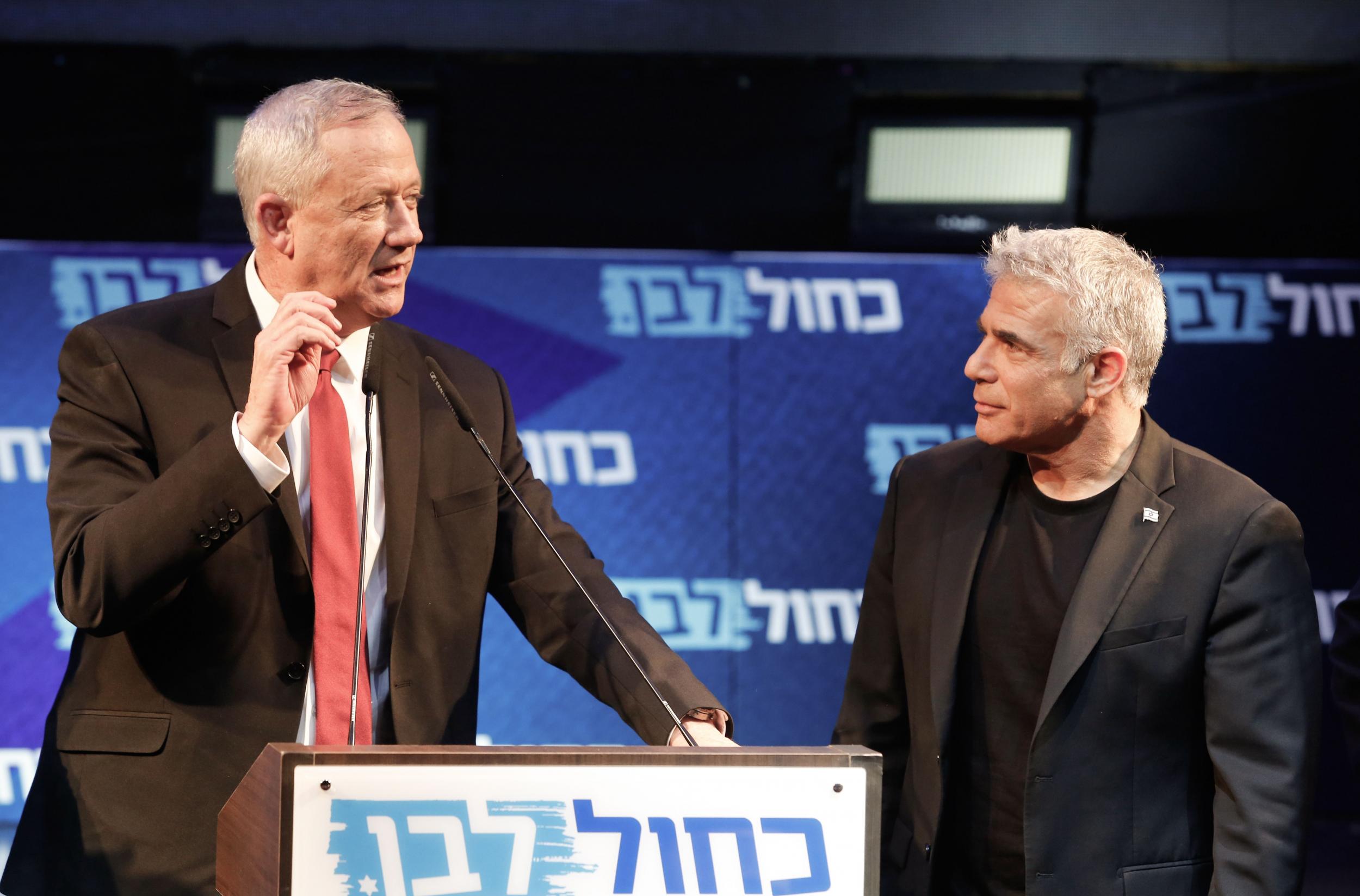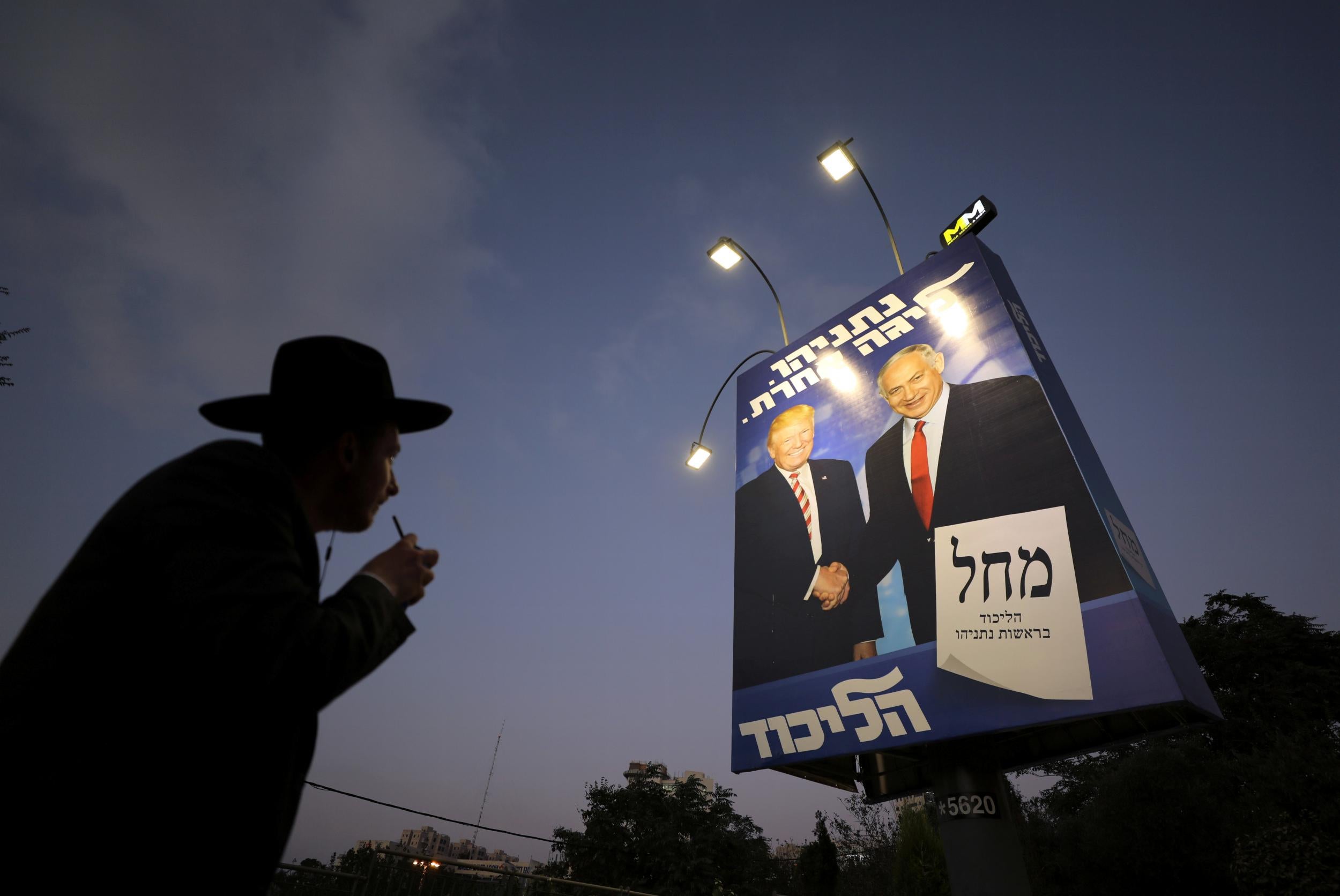Israel elections: Netanyahu fighting for survival as polls predict another stalemate in unprecedented second vote
Israelis head to polling stations on Tuesday for second time in just six months with many fearing no obvious outcome will lead to third election

Your support helps us to tell the story
From reproductive rights to climate change to Big Tech, The Independent is on the ground when the story is developing. Whether it's investigating the financials of Elon Musk's pro-Trump PAC or producing our latest documentary, 'The A Word', which shines a light on the American women fighting for reproductive rights, we know how important it is to parse out the facts from the messaging.
At such a critical moment in US history, we need reporters on the ground. Your donation allows us to keep sending journalists to speak to both sides of the story.
The Independent is trusted by Americans across the entire political spectrum. And unlike many other quality news outlets, we choose not to lock Americans out of our reporting and analysis with paywalls. We believe quality journalism should be available to everyone, paid for by those who can afford it.
Your support makes all the difference.Israel’s embattled prime minister is fighting for his political survival as the last polls before a fraught general election show he and his main rival, the country’s former army chief, are neck and neck.
The latest tallies also indicate that Benjamin Netanyahu and his supporters may be unable to sweep enough seats to form a government, for the second time this year.
Mr Netanyahu, who is campaigning for re-election on Tuesday under the shadow of three corruption trials, failed to build a coalition after the last general election in April. The country will now return to the polling stations for the second time within six months: an unprecedented event in Israeli history.
The last polls released over the weekend by Israeli TV channels 12 and 13 predict Mr Netanyahu’s Likud party and his rival Blue and White, headed by ex-army chief Benny Gantz, would sweep 32 seats each.
Both also predict a stalemate in coalition building: no bloc, whether right or centre, will manage to secure a 61-seat majority of the 120 seats available in Israel’s Knesset to form a government, sparking fears of a third election.
At last-minute rallies in Jerusalem, Mr Netanyahu’s ministers sounded the alarm, warning of voter fatigue and the spectre of a left-leaning government.
“Every election there is a chance [Netanyahu] could lose,” said Tzipi Hotovely, the country’s deputy foreign minister, surrounded by young supporters at a trendy marketplace in the city centre.
“Part of these elections is getting out of [this] kind of indifference of politics. There are two ways in Israel: right and left. People need to decide.”
When asked if there was any chance of the Likud parting ways with Mr Netanyahu in order to speed up coalition building, she forcefully replied: “Not an option.”
Mr Netanyahu as leader is a sticking point for many parties who are concerned over his likely indictment on graft charges.
Voter fatigue was also the focus of Mr Netanyahu’s latest campaign video, which took a break from warning of an Arab takeover of the government, instead targeting indifferent youth in Israel’s beach-front commercial capital Tel Aviv.
In a slickly shot montage of Israelis enjoying the city’s beaches, bars and cafes, the prime minister warned his supporters not to be complacent.
“While you’re planning your ‘vacation day’ the left is coming to take power. Don’t be complacent! On 17 September, vote Likud,” the video said.
Prominent pollsters reiterated reports of low voter turnout and said that there was no way a coalition can be formed, once poll predictions and the statements released by parties are taken into account.
“All the party leaders have made so many whacky coalition promises and statements that if you look at them all, they have all basically banned each other,” Dahlia Scheindlin, a public opinion expert who has worked on seven campaigns in Israel, told The Independent.
“Either someone is lying, or someone has to break their promises if we are going to avoid a third election,” she added.
She said because the country is so deeply divided, the defining factor of this election is that its outcome will not be determined by who people want but by what the party leaders negotiate behind closed doors.
“This election is pure a politically elite decision. Everyone knows who the public will vote for. The politicians already know their vote, everyone is waiting for the decision of the leaders,” she added.

Mr Netanyahu is fighting to secure a record fifth term in office as prime minister which critics have said would shield him should he be indicted on corruption charges across three cases in a hearing which is due to take place after the polls.
It has been a tumultuous year for the prime master, who is Israel’s longest-serving premier
He was forced to initially call early elections last year after his defence minister Avigdor Lieberman resigned and pulled his party out of the ruling coalition, leaving Mr Netanyahu with an impossible one-seat knife-edge majority.
Although the premier secured 35 seats in the April elections and was tapped by Israel’s president, Reuven Rivlin, to form the next government, he failed to get enough parties on side to secure the 61 seats needed to rule.
Mr Lieberman, whose right-wing Yisrael Beiteinu party won five seats in the polls and could have tipped the balance, once again played kingmaker, or destroyer, by refusing to join Mr Netanyahu’s coalition at the 11th hour. The Likud and its supporters voted for fresh elections.
Mr Lieberman has nominally said in Tuesday’s elections he would side with Blue and White.
The Israeli leader has, however, secured some serious wins for the right.
Over the last year and half, his close relationship with Donald Trump’s administration has seen the US controversially recognise the disputed city of Jerusalem as Israel’s capital, affirm Israeli sovereignty over the Golan Heights, which was captured from Syria during the 1967 war, and slash funding to the Palestinians.
Last Wednesday, in a seemingly desperate bid to win more votes, Mr Netanyahu promised to immediately annex the Jordan Valley and north Dead Sea area of the occupied West Bank should he be re-elected. He hinted he would have the support of Donald Trump, despite the action being illegal under international law and sparking condemnation from global leaders.
After being accused by his hawkish rivals of being too lenient with militants in Gaza, he also began warning of an imminent war in the besieged strip during a number of pre-election interviews.
Left-leaning paper Haaretz revealed on Monday that Mr Netanyahu’s security advisers were even preparing to delay the elections to launch a military operation there.
The same paper also reported Mr Netanyahu nearly ordered strikes on the strip after being embarrassingly forced off stage during a rally in Ashdod last week, when rockets rained down on the southern city.
Likud spokesperson Rachel Broyde insisted that the warning of a war with Gaza was not merely pre-election posturing and added that the party’s biggest fear was “waking up the day after the election with a left-wing coalition”.
This election is pure a politically elite decision. Everyone knows who the public will vote for
She said the party was not interested in joining forces with Blue and White to form a centre-left-right-wing alliance.
Blue and White parliamentarians meanwhile said their number-one promise was “the establishment of a secular unity government” with Likud, on the condition that Mr Netanyahu was not part of the rotation of prime ministers because of his likely indictment.
“We won’t play the left and right game. And Netanyahu cannot be prime minister in case he is indicted,” Asaf Zamir, a Blue and White member of the Knesset and former mayor of Tel Aviv, told The Independent.
He was sceptical of Mr Netanyahu’s pre-election pledges.

“Every campaign Netanyahu promises things and never does them. I think he is fighting for his freedom from jail and from that fight, he will promise anything. Nothing will surprise me,” he added.
Israel’s religious parties United Torah Judaism and Shas, who are predicted to win about seven seats each, remain fiercely loyal to Mr Netanyahu and are expected to be a core part of his base that could win him a fifth term in office.
Barak Seri, an adviser to Aryeh Deri, a Shas member of the Knesset and the country’s minister of interior, said the ultra-orthodox party would refuse to join Blue and White because of its promise to build a secular country.
“Shas will do everything to crown Benjamin Netanyahu as prime minister,” he told The Independent.
Join our commenting forum
Join thought-provoking conversations, follow other Independent readers and see their replies
Comments